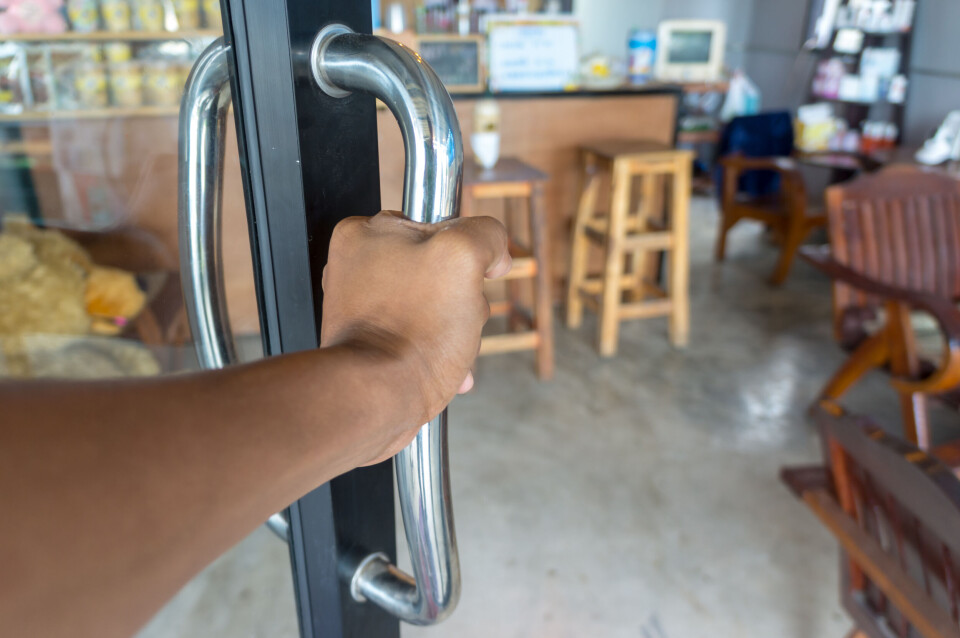-
Police across France hunt abandoned cars to free up spaces in urban areas
Vehicles cannot be parked on a public road in the same place for more than seven days
-
Senators examine proposal to guarantee access to cash machines in rural areas of France
Some 18.6% of French communes had access to at least one local ATM in 2024
-
French weekly weather forecast February 9-13: Unsettled with winds of up to 100km/h
Flood risk may increase in several regions and mountain conditions set to worsen
French shops to be required to keep doors closed while aircon is on
The new rule aims to save 20% on energy use, and is one of two new decrees that also ban the use of light-up advertising screens during dark overnight hours

Shops in France will soon be banned from leaving their doors open while also running the air conditioning or heating, as the government looks for ways to cut commercial electricity use.
Ecology minister Agnès Pannier-Runacher said that leaving doors open requires “20% more consumption” of power, which is “absurd”, she said.
She is now set to make two decrees, one to require shops to keep their doors closed if running air conditioning or heating, and another to ban light-up advertisement screens at dark hours.
She told le Journal du Dimanche: “Over the next few days, I will put forward two decrees. The first will ban light-up advertising screens, whatever the size of the town, between 01:00 and 06:00 [except in airports and train stations].
“The second decree will ban shops from having their doors open when the air conditioning or heating is on.”
Some towns already have similar rules in place for shops – especially during the recent exceptionally hot weather – including Bourg-en-Bresse, Lyon, Paris, and Besançon.
Shops will be fined €750 if they break the rules, but there will be a grace period to enable ‘education’, the minister said.
Read more: Polluting outdoor restaurant terrace heaters now banned in France
Nationwide rules
Ms Pannier-Runacher specified the “size of the town” in her decree, because current legislation distinguishes between towns of more than 800,000 inhabitants, and those with fewer residents.
Those with fewer than 800,000 residents must turn off their publicity screens between 01:00 and 06:00. In larger towns, the rules depend on local publicity laws.
The new decree is intended to “harmonise the rules”, the minister said. Fines of up to €1,500 may be levied for areas that break the rule, she said. She admitted that rules were already in place but that “the idea is really that existing laws are applied today”.
Ms Pannier-Runacher has received criticism for bringing in new decrees rather than seeking to better enforce laws that already exist.
Night sky and nocturnal environment group l’Association nationale pour la protection du ciel et de l’environnement nocturnes (ANPCEN), which fights against light pollution, said: "The challenge remains to ensure that these texts are applied by those who have public responsibility for them: local authorities and the state.
“To date, not only has the state not carried out the checks it is responsible for, but it has passed the buck to voluntary associations.”
Bright publicity screens have long been controversial; the citizens' climate change convention in 2020 went even further than the new decrees, and called for "the banning of these screens in public spaces, public transport and points of sale".
However, this proposal was rejected.
Related articles
France prepares measures to prevent winter energy shortages
Our green home made from tyres is part of us, says family in France
























